Stalker (Russian: ???????, IPA: ) is a 1979 Soviet science fiction art film directed by Andrei Tarkovsky with a screenplay written by Boris and Arkady Strugatsky, loosely based on their novel Roadside Picnic (1972). The film combines elements of science fiction with dramatic philosophical and psychological themes.
| Stalker | |
|---|---|
Original release poster | |
| Directed by | Andrei Tarkovsky |
| Produced by | Aleksandra Demidova |
| Written by | Arkadi Strugatsky Boris Strugatsky |
| Based on | Roadside Picnic by Boris and Arkady Strugatsky |
| Starring | Alexander Kaidanovsky Anatoli Solonitsyn Nikolai Grinko Alisa Freindlich |
| Music by | Eduard Artemyev |
| Cinematography | Alexander Knyazhinsky |
| Edited by | Lyudmila Feiginova |
Production company | Mosfilm |
Release date | May 1979 Dom Kino, Moscow |
Running time | 161 minutes |
| Country | Soviet Union |
| Language | Russian |
| Budget | 1,000,000 SUR |
The film depicts an expedition led by a figure known as the "Stalker" (Aleksandr Kaidanovsky) to take his two clients—a melancholic writer (Anatoli Solonitsyn) seeking inspiration, and a professor (Nikolai Grinko) seeking scientific discovery—to a mysterious restricted site known simply as the "Zone," where there supposedly exists a room which grants a person's innermost desires. The trio travel through unnerving areas filled with the debris of modern society while engaging in many arguments. The "Zone" itself appears sentient, while their path through it can be sensed but not seen. In the film, a "stalker" is a professional guide to the Zone, someone having the ability and desire to cross the border into the dangerous and forbidden place with a specific goal.
Stalker has been called one of the best drama films of the latter half of the 20th century, and ranks 29th on the British Film Institute's "50 Greatest Films of All Time" poll.
Screenplay
The meaning of the word "stalk" was derived from its use by the Strugatsky brothers in their novel Roadside Picnic, on which the movie is based. In Roadside Picnic, "Stalker" was a common nickname for men engaged in the illegal enterprise of prospecting for and smuggling alien artifacts out of the "Zone". The common English definition of the term "stalking" was also cited by Andrei Tarkovsky.
In the indefinite future, the "Stalker" (Alexander Kaidanovsky) works in some unclear territory as a guide who leads people through the "Zone", an area in which the normal laws of reality do not apply. The Zone contains a place called the "Room", said to grant the wishes of anyone who steps inside. The area containing the Zone is sealed off by the government and great hazards exist within it. At home with his wife and daughter, the Stalker's wife (Alisa Freindlich) begs him not to go into the Zone but he ignores her pleas. In a rundown bar, the Stalker meets his next clients for a trip into the Zone. The "Writer" (Anatoly Solonitsyn) and the "Professor" (Nikolai Grinko) agree to put their fates in the Stalker's hands. They remain nameless and the characters refer to one another by their professions.
They evade the military blockade that guards the Zone, surviving gunfire from the guards. They then ride into the heart of the Zone on a railway work car. The Stalker tells his clients they must do exactly as he says to survive the dangers which lie ahead and explains the Zone's dangers are invisible. The Stalker tests for traps by throwing metal nuts tied to strips of cloth ahead of them. The complicated path that they must take cannot be specifically seen or heard but can only be sensed. The safest path is never the straight path.
The Writer is skeptical of any real danger, but the Professor generally follows the Stalker's advice. As they travel, the three men discuss their reasons for wanting to visit the Room. The Writer expresses his fear of losing his inspiration. He appears angry and stressed. The Professor seems less anxious, though he insists on carrying along a small backpack. While the Professor's desires are not clear, he reluctantly gives in to repeated pleas from the Writer and admits he hopes to win a Nobel Prize for a scientific analysis of the Zone. The Stalker insists he has no motive beyond the altruistic aim of aiding the desperate. At times, he refers to a previous Stalker named "Porcupine", who had led his brother to his death in the Zone, visited the Room, come into possession of a large sum of money, and in shame committed suicide, as the Room only grants true desires.
While the Room appears to fulfill a visitor's wishes, these might not be consciously expressed wishes but unconscious desires. In addition it appears that the Zone itself has a kind of sentience. When the Writer later confronts the Stalker about his knowledge of the Zone and the Room, the Stalker replies that his information came from the now deceased Porcupine. After traveling through tunnels the three reach their destination. They determine that their goal lies inside a decayed and decrepit industrial building. In a small antechamber, a phone begins to ring. The Writer answers and cryptically speaks into the phone, stating "this is not the clinic", before hanging up. The surprised Professor decides to use the phone to telephone a colleague. In the ensuing conversation, he reveals his true intentions in undertaking the journey. The Professor has brought a "20 kiloton" with him, and he intends to destroy the Room to prevent its use by evil men.
The three then wrestle verbally and physically in a larger antechamber just outside the Room. It ends in a draw with all three of them exhausted. As they catch their breath, the Writer experiences an epiphany about the Room's true nature. He argues that when Porcupine met his goal, despite his conscious motives, the room fulfilled Porcupine's secret desire for wealth, instead of bringing back his brother from death. This in turn prompted Porcupine to commit suicide. The Writer further reasons the Room is dangerous to those who seek it for negative reasons. With his earlier fears assuaged, the Professor gives up on his plan of destroying the Room. Instead, he disassembles his bomb and scatters its pieces. The men rest before the doorway and never enter the Room. Rain begins to fall into the Room through its ruined ceiling, then gradually fades away.
The Stalker, the Writer, and the Professor are shown back in the bar, and are met there by the Stalker's wife and daughter. A black dog that was seen in the zone in front of a corpse, is in the bar with them. When his wife asks where he got the dog, Stalker declares that it just came to him, and he remarks that he felt unable to leave it behind.
Later, when the Stalker's wife tells him that she would like to visit the Room herself, he expresses doubts about the Zone. He states that he fears her dreams will not be fulfilled. As the Stalker sleeps, his wife contemplates their relationship in a monologue delivered directly to the camera. She declares that she knew perfectly well that life with him would be hard, since he would be unreliable and their children would face challenges, but she concludes that she is better off with him despite their many trials. "Martiška" the couple's daughter sits alone in the kitchen, while a love poem by Fyodor Tyutchev is recited.
Martiška holds the large book and lays her head on a table. She then appears to use psychokinesis to push three drinking glasses across it, one after the other moving across the table, the third one falling to the floor. A train passes by where the Stalker's family lives, and the entire apartment shakes. As the noise of the train begins to subside, the film ends.
- Alexander Kaidanovsky as the Stalker
- Anatoli Solonitsyn as the Writer
- Alisa Freindlich as the Stalker's Wife
- Nikolai Grinko as the Professor (voiced by Sergei Yakovlev)
- Natasha Abramova as Martiška, the Stalker's daughter
- Faime Jurno as the Writer's girlfriend
- E. Kostin as Lyuger, the cafe owner
- Raymo Rendi as the patrolman
Writing
The film is loosely based on the novel Roadside Picnic by Boris and Arkady Strugatsky. After reading the novel, Tarkovsky initially recommended it to a friend, the film director Mikhail Kalatozov, thinking that Kalatozov might be interested in adapting it into a film. Kalatozov abandoned the project when he could not obtain the rights to the novel. Tarkovsky then became increasingly interested in adapting the novel and expanding its concepts. He hoped that it would allow him to make a film that conforms to the classical Aristotelian unity, that is a single action on a single location within 24 hours (single point in time).
Tarkovsky viewed the idea of the Zone as a dramatic tool to draw out the personalities of the three protagonists, particularly the psychological damage from everything that happens to the idealistic views of the Stalker as he finds himself unable to make others happy. "This, too, is what Stalker is about: the hero goes through moments of despair when his faith is shaken; but every time he comes to a renewed sense of his vocation to serve people who have lost their hopes and illusions." The film departs considerably from the novel. According to an interview with Tarkovsky in 1979, the film has basically nothing in common with the novel except for the two words "Stalker" and "Zone".
Several similarities remain between the novel and the film. In both works, the Zone is guarded by a police or military guard, apparently authorized to use deadly force. The Stalker in both works tests the safety of his path by tossing nuts and bolts tied with scraps of cloth, verifying that gravity is working as usual. A character named Hedgehog/Porcupine is a mentor to Stalker. In the novel, frequent visits to the Zone increase the likelihood of abnormalities in the visitor's offspring. In the book, the Stalker's daughter has light hair all over her body, while in the film she is crippled. Neither in the novel nor in the film do the women enter the Zone. Finally, the target of the expedition in both works is a wish-granting device.
In Roadside Picnic, the site was specifically described as the site of alien visitation; the name of the novel derives from a metaphor proposed by a character who compares the visit to a roadside picnic. The closing monologue by the Stalker's wife at the end of the film has no equivalent in the novel.
An early draft of the screenplay was published as a novel Stalker that differs substantially from the finished film.
Production
In an interview on the MK2 DVD, the production designer, Rashit Safiullin, recalled that Tarkovsky spent a year shooting a version of the outdoor scenes of Stalker. However, when the crew returned to Moscow, they found that all of the film had been improperly developed and their footage was unusable. The film had been shot on new Kodak 5247 stock with which Soviet laboratories were not very familiar. Even before the film stock problem was discovered, relations between Tarkovsky and Stalker's first cinematographer, Georgy Rerberg, had deteriorated. After seeing the poorly developed material, Tarkovsky fired Rerberg. By the time the film stock defect was discovered, Tarkovsky had shot all the outdoor scenes and had to abandon them. Safiullin contends that Tarkovsky was so despondent that he wanted to abandon further work on the film.
After the loss of the film stock, the Soviet film boards wanted to shut the film down, but Tarkovsky came up with a solution: he asked to be allowed to make a two-part film, which meant additional deadlines and more funds. Tarkovsky ended up reshooting almost all of the film with a new cinematographer, Aleksandr Knyazhinsky. According to Safiullin, the finished version of Stalker is completely different from the one Tarkovsky originally shot.
The film uses sepia for the world outside the Zone and color footage within the Zone.
The central part of the film, in which the characters travel within the Zone, was shot in a few days at two deserted hydro power plants on the Jägala river near Tallinn, Estonia. The shot before they enter the Zone is an old Flora chemical factory in the center of Tallinn, next to the old Rotermann salt storage and the electric plant, now a culture factory where a memorial plate of the film was set up in 2008. Some shots within the Zone were filmed in Maardu, next to the Iru powerplant, while the shot with the gates to the Zone was filmed in Lasnamäe, next to Punane Street behind the Idakeskus. Other shots were filmed near the Tallinn–Narva highway bridge on the Pirita River.
The documentary film Rerberg and Tarkovsky: The Reverse Side of "Stalker" by Igor Mayboroda offers a different interpretation of the relationship between Rerberg and Tarkovsky. Rerberg felt that Tarkovsky was not ready for this script. He told Tarkovsky to rewrite the script in order to achieve a good result. Tarkovsky ignored him and continued shooting. After several arguments, Tarkovsky sent Rerberg home. Ultimately, Tarkovsky shot Stalker three times, consuming over 5,000 metres (16,000 ft) of film. People who have seen both the first version shot by Rerberg (as Director of Photography) and the final theatrical release say that they are almost id
Watch movie Stalker 1979 Film online on Amazon
Watch movie Stalker 1979 Film online
Watch The Movie On PrimeTeen Bahuraniyan Full HD Movie Download
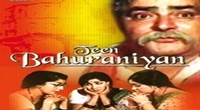
Teen Chor Full HD Movie Download

Rajaji Full HD Movie Download
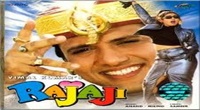
Seema Full HD Movie Download
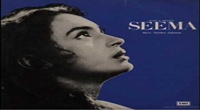
Apne Rang Hazar Full HD Movie Download
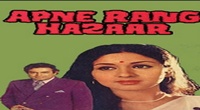
Lalchee Full HD Movie Download
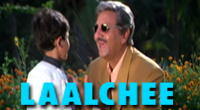
Umar Pachpan Ki Dil Bachpan Ka Full HD Movie Download

Aag Hi Aag Full HD Movie Download
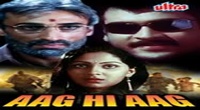
Kahaani Gudiya Ki Full HD Movie Download

Daku Rani Talwarwali Full HD Movie Download
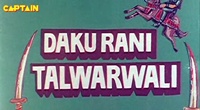
Rajkumar (1996) Full HD Movie Download
.jpg)
Shaheed (1948) Full HD Movie Download
.jpg)
Gadvasu Pindam Full HD Movie Download
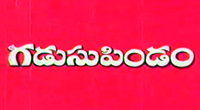
Jagan Mohini Full HD Movie Download

The Matrix Revolutions Full HD Movie Download
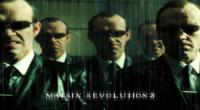
Kokila Full HD Movie Download
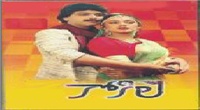
Prema Gola Full HD Movie Download
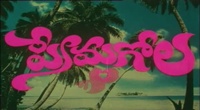
Bangaru Panjaram Full HD Movie Download
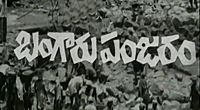
Maaman Magal Full HD Movie Download

Mannan Full HD Movie Download
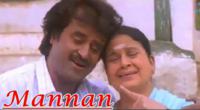
Dostana (2008) Full HD Movie Download
.jpg)
Download latest Movie from bollywood
- 1> baaghi 3
- 2> THE SKY IS PINK MOVIE FULL STORY AND REVIEW
- 3> Luka Chuppi
- 4> TO ALL THE BOYS I’VE LOVED BEFORE
- 5> Kabir Singh
- 6> Street Dancer 3D
- 7> Simmba
- 8> Gone Girl
- 9> The Girl Who Lived
- 10> Ludo
- 11> DILWALE DULHANIA LE JAYENGE
- 12> GUILTY
- 13> The Godfather
- 14> Adventures of Rusty
- 15> Sooryavanshi
- 16> Satyameva Jayate 2
- 17> Thappad
- 18> Bhool Bhulaiyaa 2
- 19> KGFChapter 2
- 20> Mardaani 2
- 21> Pinjar
- 22> Shivaji maharaj
- 23> Ek Villian 2
- 24> Hungama 2
- 25> Divergent
- 26> Mumbai Saga
- 27> The Internship
- 28> HIT (telugu)
- 29> Panga
- 30> The perfect date
- 31> 16 December
- 32> Gopala Gopala (Telugu)
- 33> Brahmastra
- 34> Gangubai Kathiawadi
- 35> Manmadhudu
- 36> Nenu local
- 37> Mahanati
- 38> Shatamanam bavathi
- 39> Lagaan
- 40> After
- 41> MOM
- 42> Shamshera
- 43> Raguvaran BTech
- 44> Khakee
- 45> The villain
- 46> OM
- 47> Mr. perfect
- 48> Bueatifull mind
- 49> Hichki
- 50> Gabbar Singh
- 51> Jogi
- 52> Before Sunrise
- 53> Before Sunset
- 54> Before Midnight
- 55> The Big Bull
- 56> Top Gun: Maverick
- 57> The Purge
- 58> The Sky is Pink
- 59> Laxmmi Bomb
- 60> Sadak 2
- 61> Sufna
- 62> Prithviraj
- 63> PK
- 64> Coolie No 1(2020)
- 65> Black Widow
- 66> Dear Zindagi
- 67> Dil Bechara
- 68> PHIR HERA PHERI
- 69> WAR
- 70> Dostana
- 71> RRR: Roudram Ranam Rudhiram
- 72> Maidan
- 73> Dabbang 3
- 74> Chhalaang
- 75> life as we know it
- 76> SherShaah
- 77> Sandeep Aur Pinky Faraar
- 78> Event Horizon
- 79> 83
- 80> Radhe: Your Most Wanted Bhai
- 81> Gunjan Saxena: The Kargil Girl
- 82> Mr India
- 83> Vivah
- 84> Anokha Bandhan
- 85> Ghost
- 86> Bhoot: Part One - The Haunted Ship
- 87> Haseen Dilruba
- 88> Laal Singh Chaddha
- 89> Qismat
- 90> Rajput
- 91> Drive
- 92> Dil Chahta Hai
- 93> Dil Ki Baazi
- 94> Dil Ka Rishta
- 95> Teesri Manzil
- 96> Dil
- 97> Love Aaj Kal
- 98> Khaali Peeli
- 99> Bunty Aur Babli 2
- 100> Atrangi Re
- 101> Gulabo Sitabo
- 102> Jodi
- 103> Suraj Pe Mangal Bhari
- 104> Deewana
- 105> Attack
- 106> Sardar Udham Singh
- 107> Toofan
- 108> THE LOVEBIRDS
- 109> Jersey
- 110> Ginny Weds Sunny
- 111> Thalaivi
- 112> Shiddat
- 113> Angels vs Zombies
- 114> Koi Mil Gya
- 115> Thank God
- 116> Bhuj: The Pride of India
- 117> Hum Aapke Hain Kaun
- 118> The Platform
- 119> Bird Box
- 120> Roohi Afzana
- 121> Torbaaz
- 122> Nikamma
- 123> World War Z
- 124> Extraction
- 125> Train to Busan
- 126> Life of Pi
- 127> SHAADI MEIN JROOR AANA
- 128> Himmat Aur Mehnat
- 129> To All The Boys: P.S. I Still Love You
- 130> Mimi
- 131> Good Newwz
- 132> Shubh Mangal Zyada Saavdhan
- 133> Raabta
- 134> Harry Potter and the Philosopher's Stone
- 135> Harry Potter and the Chamber of Secrets
- 136> Chhapaak
- 137> War of the Worlds
- 138> Harry Potter and the Prisoner of Azkaban
- 139> Harry Potter and the Goblet of Fire
- 140> MURDER MYSTERY
- 141> Shakuntala Devi
- 142> Bachchan Pandey
- 143> Jayeshbhai Jordar
- 144> Sheer Qorma
- 145> Saina
- 146> 'O' Pushpa I hate tears
- 147> Kedarnath
- 148> MS Dhoni The Untold Story
- 149> Chhichhore
- 150> Badhaai Ho
- 151> Unstoppable
- 152> Oz the Great And Powerful
- 153> The Girl on the Train
- 154> Haathi Mere Saathi 2020
- 155> The Conjuring: The Devil Made Me Do It
- 156> Gandhi Se Pehle Gandhi
- 157> The Song of Scorpions
- 158> Srimanthudu
- 159> Hello Guru Prema Kosame
- 160> Beauty and The Beast
- 161> Black Panther
- 162> Charlie and the Chocolate Factory
- 163> Bole Chudiyan
- 164> Fidaa
- 165> Duvvada Jagannadham
- 166> Bruce Lee: The Fighter
- 167> Hyper
- 168> Yaara
- 169> Red (2020)
- 170> Shivam
- 171> That Is Mahalakshmi
- 172> Nishabdham
- 173> Aashram 2020 web series
- 174> Laxmii
- 175> Mismatched
- 176> STUDENT OF THE YEAR 2
- 177> NAIL POLISH
- 178> Ramprasad Ki Tehrvi
- 179> KAAGAZ
- 180> 12 o Clock
- 181> The Power
- 182> bolo hau
- 183> Tribhanga
- 184> JAMUN
- 185> Madam Chief Minister
- 186> Maasaab
- 187> Aadhaar
- 188> Tanhaji
- 189> Bhaagi 3
- 190> Bhootnath
- 191> MALANG
- 192> Jai Mummy Di
- 193> Haathi Mere Saathi 2021
- 194> Shakeela
- 195> Unpaused
- 196> Annayya
- 197> Vamsoddharakudu
- 198> Mrugaraju
- 199> Narasimha Naidu
- 200> Sankranti
- 201> Manasu Maata Vinadhu
- 202> Anjaane
- 203> Apaharan
- 204> Bachke Rehna Re Baba
- 205> Bewafaa
- 206> Roohi
- 207> Radhe
- 208> Zindagi Khoobsoorat Hai
- 209> Yeh Mohabbat Hai
- 210> Yeh Kya Ho Raha Hai?
- 211> The Tomorrow War
- 212> DehradunDiary
- 213> Meri Shaadi Karaoo
- 214> Matruu Ki Bijlee Ka Mandola
- 215> No One Killed Jesica
- 216> Aag Ka Goola
- 217> Eight Million Dollars
- 218> Three Hundred
- 219> Cats and Dog
- 220> Decoy
- 221> Gold Rush
- 222> You Have Got Mail
- 223> Final Destination three
- 224> Tofan
- 225> Jungle
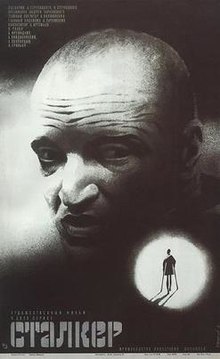 Story of movie Stalker 1979 Film :
Story of movie Stalker 1979 Film : 